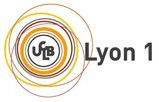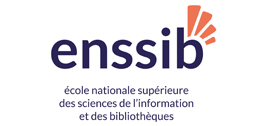Centralised vs Decentralised Systems: an Interdisciplinary Perspective
| When |
Dec 18, 2017
from 10:00 to 08:00 |
|---|---|
| Where | Salle Condorcet, ENS de Lyon (Monod) |
| Add event to calendar |
|
Program
10h00-10h30: Welcome Coffee
10h30-12h30: Towards Trustworthy Online Voting: Distributed Aggregation of Confidential Data (public PhD defense) - Robert Riemann, Inria & ENS Lyon
Abstract: Aggregation of values that need to be kept confidential while guaranteeing the robustness of the process and the correctness of the result is necessary for an increasing number of applications. Various kinds of surveys, such as medical ones, opinion polls, elections require the aggregation of confidential data. In general, the confidentiality is ensured on the basis of trusted third parties or promises of cryptography, whose capacities cannot be assessed without expert knowledge.
The ambition of the presented thesis is to reduce the need for trust in both authorities and technology and explore methods for large-scale data aggregations, that ensure a high degree of confidentiality and rely neither on trusted third parties nor solely on cryptography. Inspired by BitTorrent and Bitcoin, P2P protocols are considered.
The first contribution of this thesis are robustness improvements for the distributed aggregation protocol BitBallot. The encountered scalability limitations lead to the second contribution with the objective to support large-scale aggregations. Inspired by both BitBallot and BitTorrent, a novel distributed protocol called ADVOKAT is proposed.
In both protocols, peers compute pre-determined intermediate results. The partition of data and computation among a network of equipotent peers limits the potential for data breaches and reduces the need for trust in authorities. The protocols provide a middleware layer whose flexibility is demonstrated by voting and lottery applications.
12h30-14h00: Lunch (and Defense Fest, pot de thèse)
14h00-14h15: Introduction Centralised vs Decentralised –a contemporary challenge, Stéphane Grumbach, Inria & ENS Lyon
14h15-14h45: Different voting protocols and their impact on the result, Antoinette Baujard, Université Jean Monnet
14h45-15h15: Jumplyn: building competitive information management systems, Stéphane Frénot, INSA Lyon
15h15-15h30: Coffee Break
15h30-16h00: Decentralisation in Practice: Personal Hardware Cloud, Benjamin Nguyen, INSA Centre Val de Loire
16h00-16h30: Generating System Trust in Voting Systems, Jörg Pohle, Humboldt Institute for Internet and Society (Berlin)
16h30-17h00: k-times Full Traceable Ring Signature, Pascal Lafourcade, Université Clermont Auvergne










